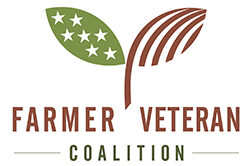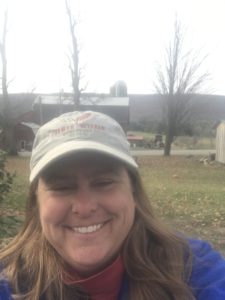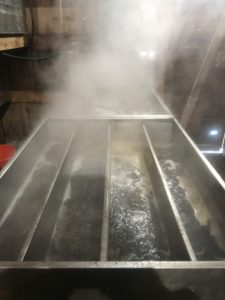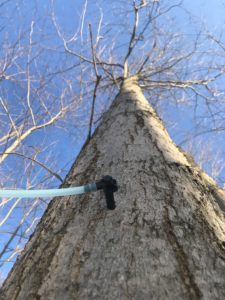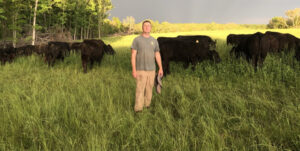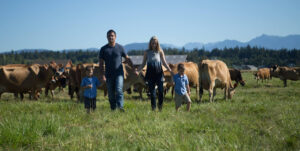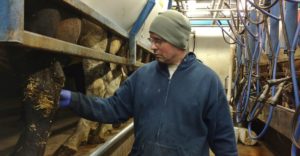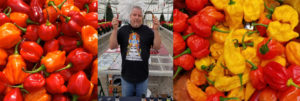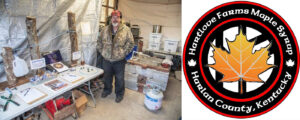Maple season in New York is usually a quiet time on Creekside Meadows Farm.
“Spring hasn’t quite hit so we aren’t grazing yet or planting veggies,” shares Tricia Park of Cazenovia, just outside of Syracuse. “Our maple enterprise keeps us busy enough during what was a boring down time. And it’s a nice product to offer that’s shelf stable and who doesn’t like real maple syrup with our bacon?!”
Tricia runs Creekside Meadows full time along with her son, Cameron. Her husband is a Bobcat Mechanic who helps with the farm part time.
“When we purchased the farm we were excited to have about a dozen large old maple trees along the road so we tapped them and set up a simple wood fired boiler in front of the garage,” reflects the owner of the 150-acre property. “Most of the woods are maple trees so we started researching on maple production for small operations.”
Before Creekside Meadows, Tricia served in the US Air Force from as an AGE mechanic from 1987-1990 in Turkey, and subsequently served 4 years in the NY Army National Guard.
Back on the farm, Tricia and her family starting making just a few gallons of syrup a year for themselves. Then four years ago they ran 1,000 feet of main sap line up the hill and put it 100 taps to start. Tricia purchased a used evaporator set up from a meat customer, made many improvements to it and the men built a sugar shack using timber from their woods to house it all.
This slow build-up eventually landed them at a production of 50 gallons of syrup a year. In 2021 they will add roughly 50 more taps, bringing their tally close to 300.Tapping will start in February and takes 1-2 days.
“We use our own wood to fire the boiler. It’s slab wood left over from the sawmill. Customers say they can smell a hint of the smoke in the finished syrup,” explains the veteran.
Each year they take the income from syrup sales and put a portion back into the equipment to make it more efficient and produce more syrup. The family has essentially found their sweet spot where the equipment is paid for and they can add a little more production without sacrificing anything.
In 2017 an FVC Fellowship Fund grant helped the family purchase a Woodmax Chipper, which they use to process the top branches of their cut trees. The chips then become winter bedding for the cows. The timber is cut into lumber for building projects – the sugar shack, farmstand, and a new 30×100’ barn. The waste slab wood then fires the boiler for the syrup production.
“All of it helps us utilize parts of the farm that we don’t use for livestock grazing or vegetables that would often be ignored, but we pay a mortgage on taxes on,” Tricia shares. “We can lightly impact the land but not hurt the ecosystem and that’s how we like it. We try to close the loop on waste production.”
Beyond their syrup offerings, Tricia raises 100% grass fed beef, pasture/woodland raised pork, seasonal vegetables, and produced farmstead soaps and wood working. Everything is direct-marketed from the farm and seasonal farmstand.
But the Air Force veteran offers this perspective: “If all this seems rosy and easy, it’s not. It’s been 10 years of ups, downs, learning curves, deer and squirrels eating the sap lines like candy, bottles breaking, ruined syrup and an evaporator pan on fire last spring as COVID hit NY. It was kind of an omen for 2020… Burning syrup is not a smell you ever forget and I will never walk away from the sugar shack ‘for a minute’ again. That was an expensive mistake.”
